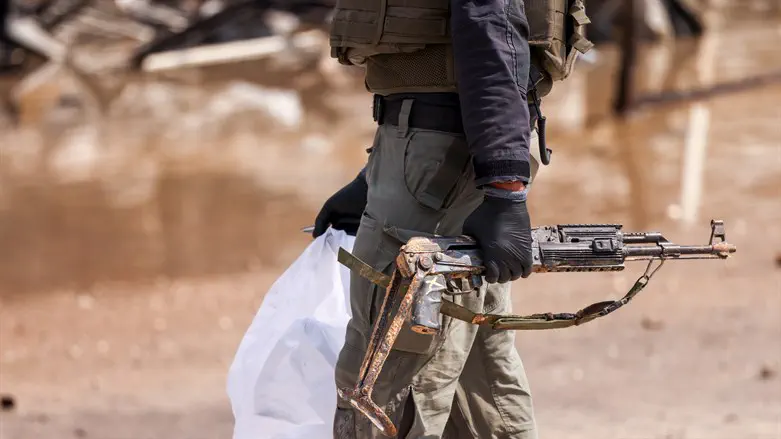
The State Prosecutor on Monday filed an indictment with the Be'er Sheva District Court against three residents of the southern Bedouin city of Rahat, on suspicion that they hid Gazans who infiltrated Israel on October 7.
The suspects have been named as Suleiman Abu Amash (49), Mohammad Tarabin (37), and Matarabin Wassaber Shikh Ala'id (52).
They are suspected of concealing four Gazans who infiltrated Israel during the October 7 massacre.
The Prosecutor's Office has also requested that the suspects remain under arrest until the completion of legal proceedings against them, and that one of the homes used to house the Gazans be appropriated.
According to the indictment, "Four residents of Gaza entered Israel on the morning of the brutal attack, through breaches which terrorists made in the fence. They stole a tractor and traveled in it until the gas ran out. The next day, the four arrived at Rahat and slept in a mosque there. A day later, during a walk in Rahat, two of the infiltrators met Abu Amash, told him that they had entered from Gaza on the day of the attack, and asked to sleep at his home 'until the situation calms down.' Abu Amash agreed and said that he knows that the police are picking up people from Gaza and begged them to stay. During the day, the other two infiltrators joined them."
"After a few days, some of the infiltrators said that they have a relative who lives in Israel. Abu Amash contacted the relative of Tarabin, who arrived together with another person to take them to his home. After about two weeks, the additional person contacted Ala'id and told him that he has two workers from Gaza who do not have permits to stay in Israel who are interested in working for him. Even though Ala'id suspected that they had entered under cover of the attack, he hosted them in his home and avoided investigating the circumstances of their entry into Israel."
In the request to extend the suspects' arrest until the completion of proceedings against them, the Prosecutor's Office said that the three had committed crimes against Israel's security, explaining, "They endangered the public's safety by hosting, and hiding, Gazans who entered Israel under cover of the murderous attack and not turning them over to the police. In their actions, the respondents endangered the citizens of Israel, while knowing that it is forbidden to host Gazans and that all of the entry permits for Gazans had been canceled, and they even made it more difficult for security forces, who were forced to invest effort and resources in order to catch the Gazans."

